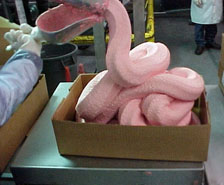AMI: “Processed meats remain healthy part of balanced diet”

“A new study alleging a link between processed meats and diabetes is problematic because it ignores some basic science about the physiology of diabetes and the ingredients in processed meats,” AMI Foundation President James H. Hodges has stated.
In a recently published statement, Hodges said the study’s conclusions also appear inconsistent with findings from a much larger Centers for Disease Control and Prevention (CDC) study.
“Zeroing in on a single category of food and then a single branded product within that category does an injustice to this complex issue. Consumers who enjoy processed meats should continue to consume them as part of a health balanced, diet.
The CDC completed a nearly decade long study addressing the complex issue of diabetes among American Indian populations. In its summary, CDC does not reference processed meats or nitrite as a factor among these populations. Instead, CDC writes, ‘Most cases of diabetes among Native Americans are type 2, the most common form of the disease, and is associated with modifiable risk factors such as obesity and inactivity.’
The American Diabetes Association’s Food & Fitness page acknowledges lean meats – including processed meats – as part of a healthy balanced diet for diabetics.
The new study also makes a troubling speculation that perhaps nitrite in some processed meats could be the cause of the diabetes. This ignores the fact that 93% of human nitrite intake comes from vegetables and human saliva – not from cured meats. If nitrite were the issue, then one would think the vegetables would be the cause of the diabetes, yet no one is suggesting that association.
Finally, it is noteworthy that the National Institutes of Health, including National Institute on Diabetes, has been conducting extensive research on nitrite as a therapeutic agent for many diseases. If there were legitimate concern that nitrite could cause diabetes, it is extremely unlikely that NIH scientists would be administering it to patients.”
Source: AMI













